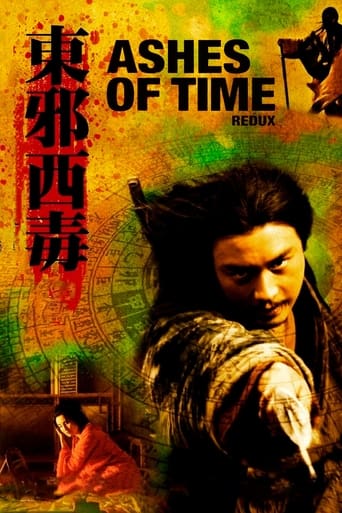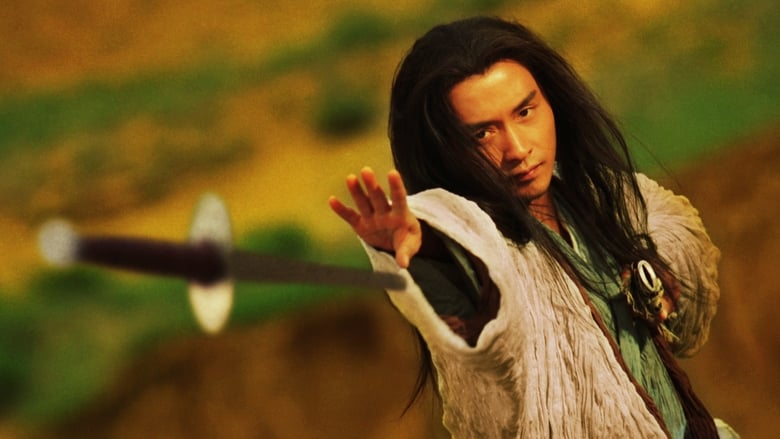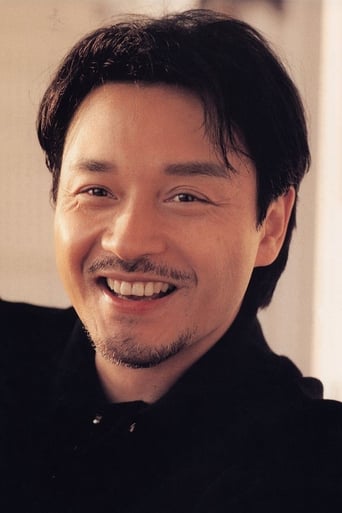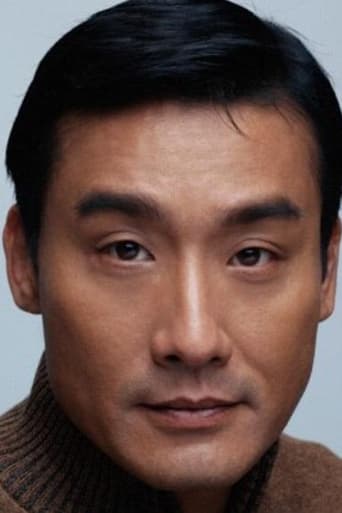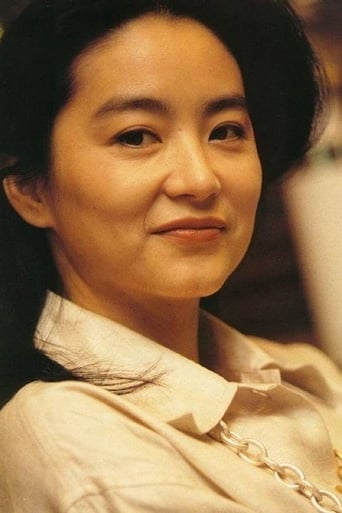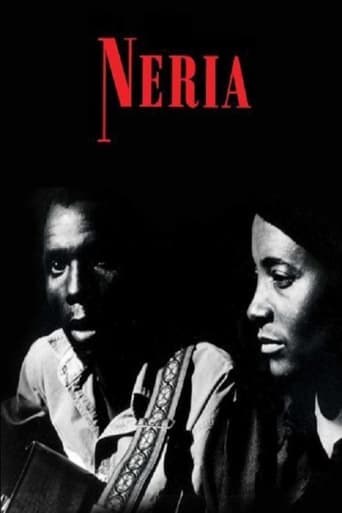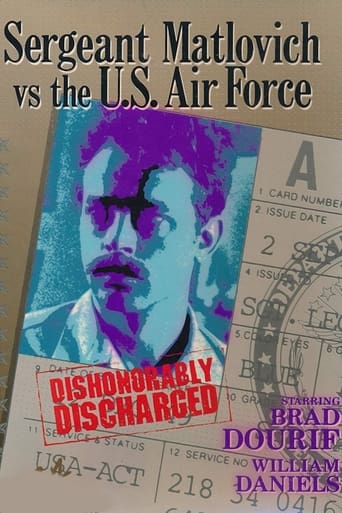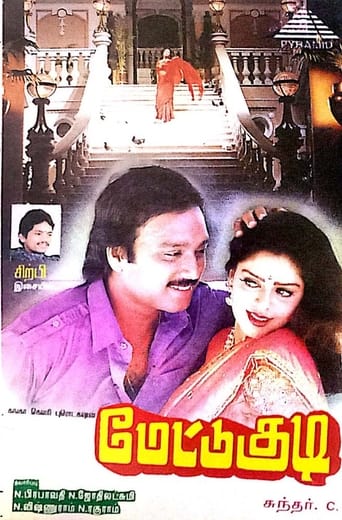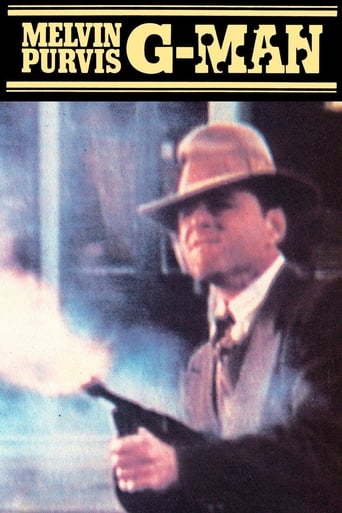Ashes of Time (1995)
Ouyang Feng is a heartbroken and cynical man who spends his days in the desert, connecting expert swordsmen with those seeking revenge and willing to pay for it. Throughout five seasons in exile, Ouyang spins tales of his clients' unrequited loves and unusual acts of bravery.
Watch Trailer
Cast
Similar titles
Reviews
To me, this movie is perfection.
Good concept, poorly executed.
The performances transcend the film's tropes, grounding it in characters that feel more complete than this subgenre often produces.
An old-fashioned movie made with new-fashioned finesse.
Most viewers of this film will know the back story. Kar Wai Wong (2046) collected pieces of his 1994 film Ashes of Time and remastered them to make this film.The first thing you notice is the magnificent cast: Maggie Cheung (2046, Hero), Tony Leung Chiu Wai (Lust, Caution, Hero, Infernal Affairs III), and Tony Leung Ka Fai (Zhou Yu's Train). A hint of excellence to come.Christopher Doyle's cinematography is the next thing to capture your attention. While the area is in the midst of a drought and it is desert, it is painted in a way that draws you into the scene. It is simply a visually stunning film from the opening to the end.The swordplay was a dance of magic and added to the film, but was not the central focus. It was love, lust, betrayal, vengeance, pain and yearning that was displayed beautifully by the magnificent actors to a soft and stirring soundtrack.We want to remember; we want to forget. The seasons come and go as does our lives.
'Dung Che Sai Duk' (aka 'Ashes of Time') is a beautiful visual tapestry. It is another fine example of poetry on canvas. The story does not follow a linear structure but at the same time the dazzling visuals grip the viewer and involve us in the characters' life. The first time I watched 'Dung Che Sai Duk' I was engaged throughout the entire duration but by the end I was left a little confused. This is because I overlooked the layers and some of the important details. It also didn't help that the subtitles were poor. After second viewing, this time with better subtitles, it became a lot more clearer and my appreciation has increased much more.Almost the entire film is set in the desert. There are plenty of swordfights to enjoy but this is secondary to the story which is mainly about unrequited love and how the fights are a projection of their anger and way of dealing with rejection. The fight scenes are well choreographed. However, I felt slow motion was overused. The editing is good but I was disappointed that so many sequences were cut from the Redux version. The dialogues are marvelously poetic. The tricky cinematography is conducted through various angles and so astonishingly effective. The soundtrack is superb and atmospheric. The cast boasts of top talented names like, Leslie Cheung, Maggie Cheung, Brigitte Lin, Tony Leung Chiu Wai, Jacky Cheung and Carina Lau all of whom do full justice to their roles with subtle performances.Kar Wai Wong is known for experimenting with different themes and here he does that with unrequited love. Although the treatment of the story is slightly different when compared to his other works, the same essence remains within the characters. It is a movie that stays with you and invites you to revisit.
This classic ultra-stylized and (in the words of the NYFF blurb) "insanely gorgeous" 1994 martial arts or 'wuxia' film based on the Louis Cha novel 'The Eagle-Shooting Horses' needs no introduction to film fans now, though before Tarantino's release of 'Chungking Exrpess' Americans had to go to Chinatown theaters or rent pirated videotapes to see it; I saw it in Chinatown in a double bill with 'As Tears Go By' (1988). A cinematic icon today, Wong Kar-wai didn't get international recognition till 1997 at Cannes (for 'Happy Together'), and the majority of US art-house viewers didn't notice him till 'In the Mood for Love' (2000). Now ironically since the huge blowout and exhaustion of Wong's epic '2046' (2004), a summing-up of his 60's nostalgia themes and characters, he seems to have reached a point of exhaustion, and his English-language romance 'Blueberry Nights' (2007) was a critical failure. Re-editing 'Ashes of Time' looks like another example of treading water, but it's still great to have it; many have still not seen it, and any films as visually magnificent as Wong's are best seen in theaters. It's also fortunate that all his films can be seen on decent DVD's now with readable subtitles for English speakers, instead of the weird earlier Hong Kong prints with flickering titles in Chinese and peculiar English that disappeared before you could read them. 'Ashes of Time Redux' has the best English subtitles yet both visually and linguistically.According to Wong, 'Ashes of Time' negatives weren't in very good shape, and a search of various versions led him to a huge warehouse somewhere near San Francisco's Chinatown that contained the entire history of Hong Kong movies. He and his team put together various versions, adding a bit to what we already know, digitally cleaning up the images and "enhancing" some of the color and doing things with the sound, adding a new score and "re-arrangement" by Wu Tong including cello solos by Yo Yo Ma.Experts will have to comb over all this to explain the differences. The cinematographer Christopher Doyle, who was present at the press screening of the film at the NYFF, doesn't like the enhancing of the color and neither do I. A lot of yellows and oranges are heightened, greenish-turquoise touches are set in, and many of the desert sand landscapes seem to have lost their surface detail. This seems unnecessary and even obtrusive, but it's not enough to spoil the experience. Other images simply look more pristine and clear. Wong wouldn't say what specific changes were made in the editing. He preferred to talk about how he adapted Louis Cha's novel and how this film relates to his oeuvre. Both for him and for Doyle it was an essential milestone. The cast features the late Leslie Cheung, both Tony Leungs (Chiu Wai and Ka Fai) and Jacky Cheung, and has Maggie Cheung as The Woman and martial arts film great Brigitte Lin as Murong Yin and Murong Yang, the sister and brother. Lin, now retired, was responsible for the revival of the genre and is central to this film, though Maggie Cheung is its diva, its dream lover.Cha's novel is a complicated 4-volume wuxia genre epic, very popular but little known or appreciated in the West. Wong studied it carefully (and made a parody of it called 'Eagle-Shooting Heroes') but then though he says this film unlike all his others had a fixed plan (and thus made for a story full of fatalism), he threw away the story and just took a couple of the main characters and made up another simpler story imagining what the characters' lives were like when they were young. A simpler story. Well. The story has always seemed completely incomprehensible to me but after re-watching 'Redux' it obviously is nonetheless a coherent narrative; it's just intricate and, above all, cyclical. It ends as it begins, with the narrator looking into the camera and repeating the opening lines.'Ashes of Time' was shot in the desert. Doyle had never done that. The film was long delayed and the shoot was difficult. Doyle knew nothing about martial arts or 'Jianghu,' the parallel universe of martial arts fiction. He was under extreme constraints, having very little artificial light. Nonetheless he produced some of the most beautiful sequences in modern film, because he's a great cinematographer, perhaps the greatest of recent decades, as Wong Kar-Wai is one of the defining contemporary cinematic geniuses.Wong is notable for his meditative and arresting voice-overs. Here is a sample: "People say that if a sword cuts fast enough, the blood spurting out will emit a sound like a sigh. Who would have guessed that the first time I heard that sound it would be my own blood?" "You gained an egg, but lost a finger. Was it worth it?" There are aphorisms or bits of advice: "Fooling a woman is never as easy as you think." The film is anchored and structured by the Chinese calendar: the Chinese almanac is divided into 24 solar terms and the narrative moves forward selectively through these terms, which contain weather descriptions (naturally) and advice as to what is propitious or unlucky and in what regions and directions. There is also a great deal about oblivion and forgetfulness (which are linked with wine, including a magic wine that eliminates memory). The desert and drinking are visual touchstones throughout as are pairs, opposites, and contrasts; and there is cross-dressing and perhaps bisexual love. The images are full of flickering light. The sword fights, which do not begin until more than half way into the film, are without the acrobatic feats actually performed or digitally faked as in current martial arts films, though they are elaborately staged by the action choreographer Sammo Hung. They are a symphony of fast cutting, closeups, blurs, and slow motion (which Wong intended particularly to express the fatigue of the Blind Swordsman in the film).
On the surface of things we are faced with a martial arts film, a typical HK wuxia piece. But knowing Wong Kar-Wai, did you really expect a regular martial arts movie? 'cos that's not what you'll get...Best known for his "In the Mood for Love" and "2046", this stylish director has established his reputation among Asians and Westerners alike through his dreamy, poetic romances and metaphysical dramas. Here, in Ashes of Time, an earlier film remade, the director's teamwork with cinematographer Christopher Doyle is already in full bloom. The film offers the same colour palette and style that we find in their more recent collaborative works. This film is beautiful to look at, a mystery to behold and a genre-breaking ode to love and loss. Clearly, it looks and feels like a 21st century movie, but its origins go back some years.Based on a film originally released back in 1994, Ashes of Time Redux is a retelling a story that most of us missed the first time around. The "redux" is more than a remastered version of the original. Apparently it features significant alterations to the basic structure of the narrative as well a new musical score. More than that, it stands as the definite version of the movie, a true director's cut. It's almost a kind of second birth, because finally the movie can become known for what it truly is. Even though I have not seen the original, I will take the director's word for it and trust his judgment.And it is very easy to trust his judgment when the result is as strong as this relatively short (93 min) film. It feels like a labour of love. There must be heaps and heaps of discarded film on the editing floor, because it is clear that all the little details and cuts were hand-crafted to perfection. My main problem with the film is that it is unforgiving to its audiences, even "careless" about how they might feel about being bombarded with constant, overloaded verbiage. The result, full of symbolic links and razor-thin internal connections, may feel over-stylized and over-worked, but this kind of approach to film-making is admirable because it is so rare. Films that demand a lot also reward the viewer for paying attention. But don't get me wrong: this is not a puzzle or a mystery like some Lynch film; nor is it surrealistic dream logic like some Buñuel. No, it conveys a surprisingly simple poetic truth, encompassing love, manhood, relationships, struggle, perseverance, betrayal, fantasy, hate, jealousy, remembrance, forgetfulness, loss and loneliness. It is a movie about forgetting, and about the forgetting of having forgotten in the first place. It portrays characters as duplicates, mirages and psychic phantoms. Identities are mixed up. Friendships are won and lost, mainly lost. Love is first fleeting, then impossible and finally a memory.Memory, and time, and the passing of time: these are the central themes of this tale divided up into (non-linear) seasons. Nature is cyclical, and so is human life and especially human memory, which is always obsessed about some recurring dream or fantasy. Memory is not a time-line of events but a force of inertia, a dead weight and a curse. Time is the archnemesis of happiness, and love is proved impossible by the accidents of nature. Love that once was is no more. Nor was there any love to get around to begin with, if memory serves me correctly. Have another sip of wine, it'll help you remember/forget...The performances are through and through superb. Both the male characters and the elusive female characters are perfectly cast, and the fact that it's an all-star cast does not make it feel any less authentic. Especially female charms (and the ambivalent androgyny of one of them) are given such full force that we are left with a sea of emotions, an ocean of desire. The wailing soundtrack reaches melodramatic heights even when you expect nothing but calm and quiet; this signals that the characters are still haunted by their past. There IS no quietude, only the passing of time and the lingering-on of memory.The sword-fights are stylish (thanks to Sammo) but peripheral. Action is more often than not a piercing flash of violence that only deepens the emotional wounds carried in the hearts of the protagonists. The physical dagger in the heart of man is nothing compared to the deep soul wound inflicted in love. In death, some lucky ones lose their anxiety, while others lose nothing but their chance for redemption. Still others are driven to death by precisely this impossibility of redeeming themselves. Living and death become equally mortifying.These themes, such as the passion of unrequited love, and the wounding of lonely hearts, will be familiar from films like Mood and 2046. In fact, the director is as obsessed about these themes as are the characters in his movies. The setting does not matter: human heart is always the same - desiring, hurt and lonely. But it is not pure darkness that we encounter, there are also a few authentic flashes of pure passion and empathy (although less in Ashes than in many of his other films). To call Wong Kar-Wai a pessimist is to call outer space cold: it is rather to miss the point, to understate the case. He is not a pessimist but an explorer of love's tragic journey in life, from conception to annihilation. He takes us, as it were, beyond the here into the yonder, and gives us intimations of love's afterlife.The film is not perfect. It is oftentimes too self-absorbed. The audience will be split. I know I was. I didn't especially enjoy the movie-going experience, but I learnt a lot from it, and remembered something I thought I had forgotten... In this honest and heart-wrenching mood piece, love's memory, on the big screen, is burnt into ashes of time.
